Why don’t venues get back to you? Because they’re busy.
(You could stop reading right there. That pretty much sums it up. Except we need more gigs on the calendar, so read on….)
Today’s Educate and Entertain post is all about the “how’s” and “why’s” of reaching out to venues – and actually getting booked.
 I received the following message from a fellow musician and performer not too long ago.
I received the following message from a fellow musician and performer not too long ago.
I think it highlights very well a frustration we’ve all had…
Letter From a Musician
![]() “I recently jumped back in to the world of performing…and am trying to learn the art of sending emails to presenters to book gigs. I am astounded at how often I get no reply. Nothing. And I’m frustrated deeply by this. I have been at it for about a year and a half, and landed 5-6 gigs of varying degrees of satisfaction.
“I recently jumped back in to the world of performing…and am trying to learn the art of sending emails to presenters to book gigs. I am astounded at how often I get no reply. Nothing. And I’m frustrated deeply by this. I have been at it for about a year and a half, and landed 5-6 gigs of varying degrees of satisfaction.
Do you recommend calling a venue? This is something I have not tried. I honestly don’t even know what to say on the phone. Seems too aggressive, but maybe not…? Maybe I just need to keep at the emails.
I had a friend who is a presenter help me pick venues that might be appropriate for my music. I looked up the mission statement of these venues…and they mostly said they want audiences of all ages to come to the concerts…community, community. I’ve sent about 20 presenters my info and have gotten not even ONE reply—not even to say “go away kid.” I’ve gotten better at them—making them shorter (and will continue to work on that).
I’d love your thoughts on this. I’m ready to throw in the towel of performing. I’m really feeling like this is ridiculous.”
Don’t Throw in the Towel!
I told my email friend that this “no reply” phenomenon is certainly not unique to her.
Back when I was assembling my very first mailing to generate some bookings in schools (some 26 years ago), I recall spending a huge amount of time and money creating a fancy brochure, more time/money assembling a mailing list and printing labels, and finally, more money to send those suckers out via US Mail.
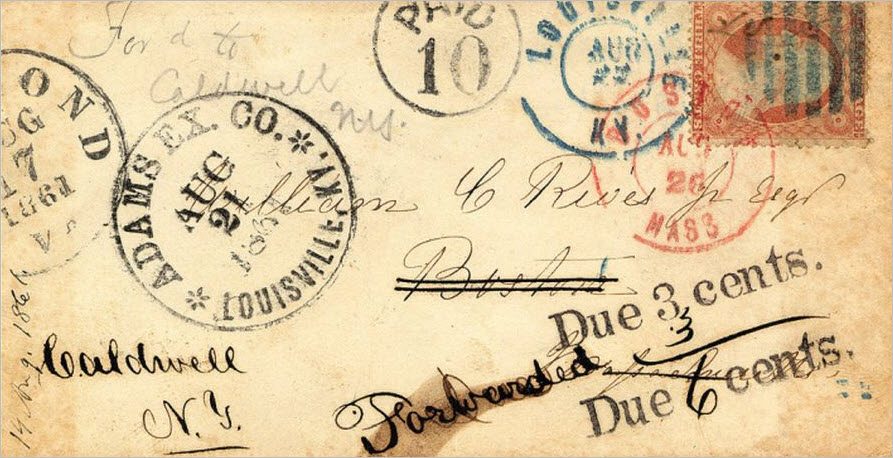 I could hardly wait for the next day, when (I was sure) the phone would begin ringing off the hook by mid-morning and not let up until sometime the following month!
I could hardly wait for the next day, when (I was sure) the phone would begin ringing off the hook by mid-morning and not let up until sometime the following month!
I had compiled a great mailing list filled with people who, I just knew, would be wildly interested in what I was offering, hanging on every word of my carefully-crafted marketing piece as they rushed to the nearest phone to get me booked.
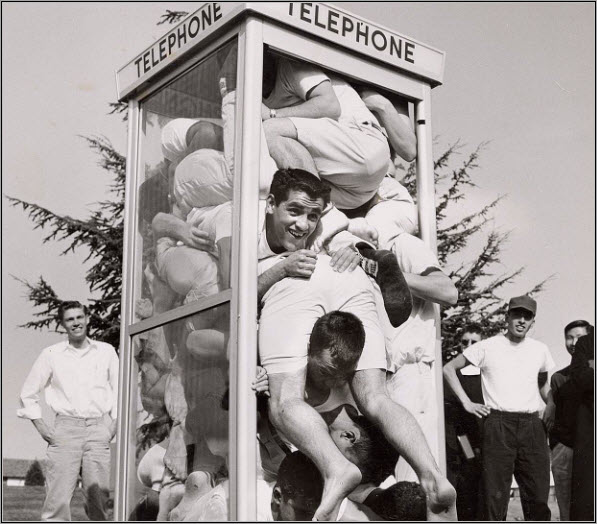 The lack of response was crushing.
The lack of response was crushing.
All that time.
All that effort.
All those mailing labels.
All that money.
All for one measly gig that barely scratched the surface on the debt I’d just rung up.
What went wrong?
As it turns out, nothing.
I had the right people’s names on that list, and I was offering programs very much in line with their potential needs.
 The critical marketing lesson didn’t reveal itself until the third, fifth, and twenty-fourth mailings.
The critical marketing lesson didn’t reveal itself until the third, fifth, and twenty-fourth mailings.
How to Reach Out to Venues for Gigs
Here’s What I’ve Learned
First of all, I’m going to assume that you’re starting from a place where you’ve carefully selected your venues and you’re not simply “blasting” or spamming people who would never have a use for the type of performance you do.
Please don’t do that. It hurts all of us.
(I’ve lost count of how many folk music presenters have told me they receive regular solicitations from rap artists and rock bands who somehow found their contact info online and neglected to consider the type of music they book. I’m sure the same happens in reverse too.)

Got the Right List?
OK, let’s assume you’ve got a robust list of appropriate venues, as I did for that first school mailing I mentioned.
What I’ve discovered through sending literally hundreds of thousands of postcards, brochures, emails, social media updates, and maybe one or two phone calls (I never liked that part either!) to the appropriate people over the last 23 years, is this:
![]() One “cold” (unsolicited) message sent to one person – or 100 people, for that matter – has a very very (very) low likelihood of affecting any kind of action on their part.
One “cold” (unsolicited) message sent to one person – or 100 people, for that matter – has a very very (very) low likelihood of affecting any kind of action on their part.
![]() Two mailings, over time, to those same people? Just slightly better.
Two mailings, over time, to those same people? Just slightly better.
![]() Three, four, five, seven contacts with that same person, over the course of a year or two, or longer?
Three, four, five, seven contacts with that same person, over the course of a year or two, or longer?
Now we’re getting somewhere.
Why?
Same reason as before…
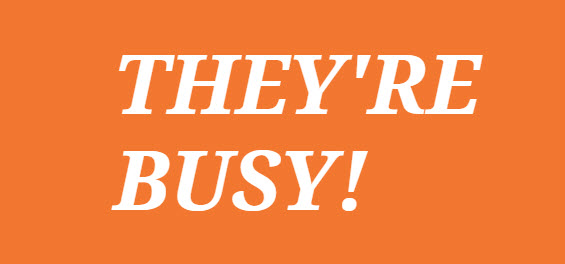 They’re wearing many hats and juggling multiple projects, not to mention the fact that they may have never heard of you when you first touch base.
They’re wearing many hats and juggling multiple projects, not to mention the fact that they may have never heard of you when you first touch base.
Perhaps they have a much bigger title such as “venue manager” or “parks director” or “librarian” or “school principal,” with scheduling performances as just one small part of their overall job description.
Or maybe they’re a volunteer with a full plate of outside activities.
The one thing you can be sure of is this: they’re fielding lots of other competing booking requests.
Some Perspective From the Venues
I asked Rick Davis, Executive Director of The 1891 Fredonia Opera House, how many solicitations he gets from performers on a weekly basis.
Here’s what he told me:

Rick Davis
“I just went back through my emails and counted 53 email booking inquiries received in a recent one-week period. That is pretty typical for us for email … about 50-60 per week. Plus, we probably field a dozen phone calls in the same period of time, some following up on the emails, others just cold calls. These would all be from artists/artist representatives who are looking for us to book them/their clients.”
The Old Songs Festival of Traditional Music and Dance in Altamont NY attracts an all-ages audience of 3,000 friendly folks each June for a weekend of singing, dancing, workshops and performances (highly recommended!). Festival Director Andy Spence had this to say:

Andy Spence
“During September we receive around 100 applications from performers in a 4-6 week period. Every email request requires us to read the material and listen to the music attachment at that moment. This takes approximately 15-20 minutes if we’re really interested. Less if wrong genre for our mission. If we want to remember the applicant we have to print out the email in order to have the email address ready for the rejection letter which follows in December or January. No matter how you handle it, keeping it organized is key, or else the whole thing becomes confused.”
Sarah Craig, Director at the legendary Caffe Lena in Saratoga Springs NY, told me this:

Sarah Craig
“I get about 10-20 queries per week. It used to be a lot more, but I posted detailed booking guidelines on our website and that has helped to eliminate a lot of inappropriate applications. To review one application takes me about 20 minutes, so I don’t review them unless I think I’m likely to be interested. Indicators that it’s not a fit include messages that are obviously sent in bulk by a large agency, or a leading description that indicates the music is outside the genres we present.”
The Cooperstown Concert Series (now in its 51st season) is a great gig with a wonderful built-in audience of music lovers, and it’s 100% volunteer run. When I performed there recently with my band, the Mayor of Cooperstown worked the merch table for us! Here’s booking coordinator Jim Hill:

Jim Hill
“Last month I received 26 emails from agents and 15 more from independent/self promoters. Typically an agent’s email promotes 6-8 performers they represent. It does get overwhelming. Most wasteful are solicitations of bands which are far outside of our price range. Geez, do your research.”
As you can see, these venues are getting solicited for gigs non-stop, and it takes time just to sift through all the irrelevant ones.
The Importance of Staying in Touch
Now, occasionally, we contact the right venue on the right date at the right time of day when they’re not too busy with other things and they’re able to think about programming for a minute AND we’re offering just exactly what they want or need at that moment.
It’s wonderful when that happens.
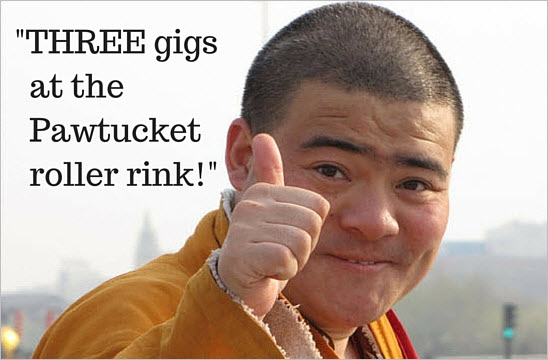 But mostly, it’s not going to be an immediate fit for them, and/or they’re just too wrapped up in other stuff.
But mostly, it’s not going to be an immediate fit for them, and/or they’re just too wrapped up in other stuff.
Once our info gets “filed” or “saved for future reference,” it’s probably forgotten for good.
That’s not necessarily intentional; it just happens.
(Have you checked your own saved emails lately – the ones you’ve archived so you can get back to them later?)
That’s why it’s really important to continue to put yourself on their radar; not TOO often, but enough that they remember who you are and what you do, and hopefully, eventually, they want to work together.
Consider This: The 2% and 80% Rule
Two enlightening statistics…
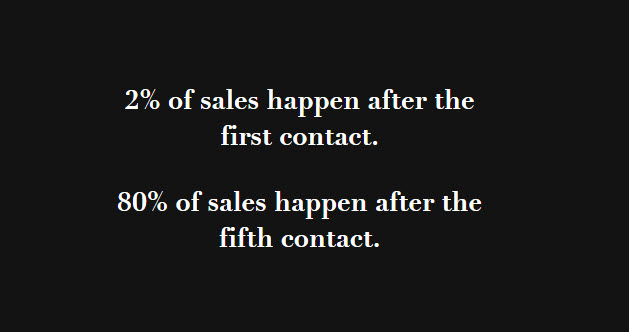 What?
What?
So, if I’ve reached out four times and gotten no response, I shouldn’t quit?
In a nutshell, yes, that’s correct (unless you’ve been told that you’re not a good fit).
This data is repeated as gospel in sales and marketing circles (you ARE selling something, right?), and I can tell you that in my experience, this is pretty much right on.
That doesn’t mean you should contact a venue six days in a row, or six weeks in a row.
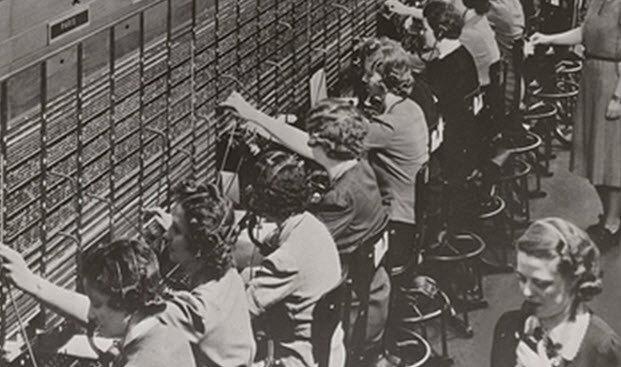 What it does mean is that, just like in all human relationships, trust and credibility are built slowly, over time, through repeated exposure.
What it does mean is that, just like in all human relationships, trust and credibility are built slowly, over time, through repeated exposure.
(See also “The Email Junkyard: Why Your Booking Emails Fail“)
The Sixth Time You Mail
Once I’d found a way to streamline the cost of my mailings (shifting from expensive brochures to quick-and-cheap postcards, and then to email), I was able to send information to the same people a handful of times over the course of a year or more.
That’s when the magic started to happen.
THEM “Oh, we’ve heard of you. We’d like to see if you’re available to perform for us.”
ME (to myself) “Yeah buddy, the reason you’ve heard of me is because I’ve been mailing you stuff for the last three years!”
Why didn’t they respond the first time?
Wouldn’t that have saved everyone a whole lot of time and trouble?
Say it with me – because they’re busy. Or, they weren’t familiar enough with me yet. Or both.
 Each time you send out a mailing, you’re going to find different members of your list who are receptive to your message at that moment.
Each time you send out a mailing, you’re going to find different members of your list who are receptive to your message at that moment.
My Best Recommendation
Start building a massive contact list of places you want to play.
Currently in my email database, I have 656 historical societies, 450 libraries, 341 folk music venues, 337 family-friendly events, 119 arts organizations, 97 museums, and 10,000+ school contacts – all entered one name at a time over a long period of time.
 This way, when I send a marketing email, I’m guaranteed to hear back from multiple places and generate multiple bookings.
This way, when I send a marketing email, I’m guaranteed to hear back from multiple places and generate multiple bookings.
In other words, I will always be able to reach SOME small subset of my universe for whom the time is right.
It’s a long game, always keeping in mind that the last thing we want to do is create more clutter for them.
But the great thing is this: once you’re “in,” things can take on a life of their own with repeat bookings and referrals to like-minded venues.
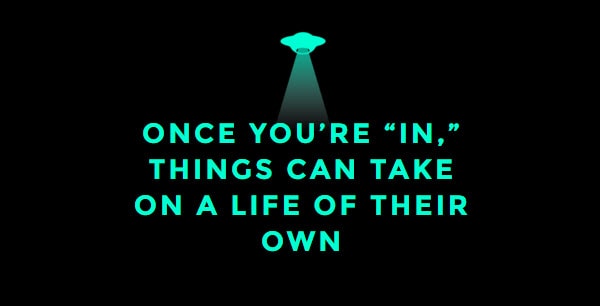 That first booking is, by far, the most costly to generate in terms of time and expense.
That first booking is, by far, the most costly to generate in terms of time and expense.
Do great work for them and you’ll be asked back, and recommended to others.
What Has Your Experience Been With Reaching out for Gigs?
Similar? Completely Different?
I’d love to hear about it. You can leave me a note in the Comments section below.
About The Blog
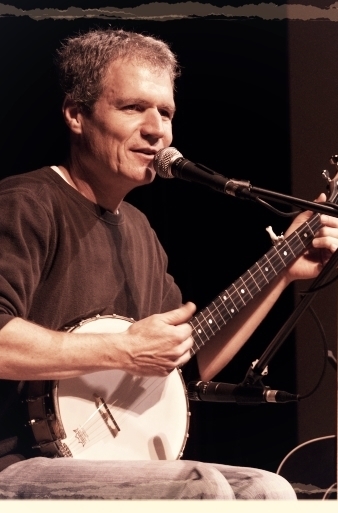 Since leaving a white-collar marketing job in 1992, Dave Ruch has been educating and entertaining full-time in schools, historical societies and museums, folk music and concert venues, libraries, and online via distance learning programs.
Since leaving a white-collar marketing job in 1992, Dave Ruch has been educating and entertaining full-time in schools, historical societies and museums, folk music and concert venues, libraries, and online via distance learning programs.
Along the way, he’s learned a great deal about supporting a family of four as a musician.
The Educate and Entertain blog provides articles, tips, encouragements, and how-to’s for regional performers (in any region) interested in making a great full-time living in the arts.


Hi Dave, I’m a bandleader/musician/arranger for a 5 piece band and found your article a few days ago. I’d just that day received a response email from a venue where my band had played 3 mths ago. I’d emailed them twice to get a follow up gig. The response from the venue booker was that they wouldn’t like to have us back as they didn’t sell enough drinks on the night and made a loss. (Another topic which I’m sure you’ve covered in another blog) I started booking venues for the band in May this year and contacted about 80 venues over a 4 mth period. I started recontacting the same venues a few wks ago ( Nov). Mainly leaving 4 -6 mths between the 1st and 2nd emails. Do you think this is a good game plan? Also, I’ve taken note of your venue email example and realised that mine read a bit like an over wordy band CV. The 3rd change I will do is try to get the actual name of each venue’s booker and a direct email (where possible) . I now have 150 venues on my contract sheet and a system where I input notes on the outcome of each venue contacted.
Btw – I live in Australia and we have the identical issues I’ve read here! It is, however, really great to find your articles and I look forward to learning more over time.
Sincerely,
Jo
You have totally nailed my experience with trying to book my 3 piece jazz group… especially in an area the caters to more middle of the road type genres.
Consistency seems to be effective definitely.
Trying to not clutter up their email inboxes can be trying.
Hi Mark~ great read here. However since I am a booking agent I often run into musicians blaming ME for not getting bookings or hearing back from venues. I do the dance, which I call the booking process by sending an introduction email on me and the artist I’m trying to book. Then the artist gets disappointed ☹️ in ME for not hearing back from these venues. I also follow up 2 weeks later and maybe a month again. Still no responses so I widen my outreach net. How can I make these artists aware these talent buyers at venues are busy and it always come down to the percentage game on reply’s?
And not getting responses back is truly not my fault?
Why not forward this article to them!?
The problem I have run into booking my band and waiting for venues to get back is we usually book two and sometimes 3 other bands on the bill. It’s hard enough coordinating a gig schedule within my band then try to coordinate with the other acts. I usually say we can play this and that date in this month or ask what they have open for such and such month. In other words I really need to know asap because if I wait too long that month goes past and or the other bands might get other opportunities and then I have to start from square one. What I’m doing now is contacting several venues for the same date(s) and whoever gets back first wins.
Thanks a lot for writing this. This is far and away the best and most practical advice on getting gigs that I’ve ever encountered,
So glad to hear that!
Does “negative comments” from the competition, when a venue inquires about you to them, ever figure into the equation of getting no responses from a venue?
Certainly seems like it could…
This was an incredibly insightful read, thank you for putting this together! It is a good reminder about how being persistent (but not annoying) will build more chances for a booking through exposure. As someone who is only a few years into the journey of a jam band, I’m not sure I can call it a marketing campaign… But my recent attempts to book local shows haven’t been as fruitful as hoped. I had a few questions, if possible:
As I head toward my 2nd contact with local venues (mostly bars/cafes that hold about 15-25 more people than we’ve come to expect at shows), is two months a safe bet for follow up? And what is your opinion on going into the venue to (hopefully) provide the booking/entertainment manager with a business card?
Thank you in advance, looking forward to the next Rochester Organ Fairchild show!
Hi Kyle – glad this was helpful! What’s the name of your band? I don’t think there’s any clear right and wrong answers to your questions other than what you already said, which is to not annoy. Two months sounds fine, as does one month or even two weeks unless you’ve been told “get back to us in the fall” or something like that. And it never hurts to be face to face with people, and it helps them to know who they’re dealing with. Also can help you rise above all the other emails they receive. Just my thoughts. Let us all know how it goes…
Hey Dave, didn’t think you’d respond so quickly! Thank you for doing so…
It’s been a bit over a month since I made my first contacts, so just getting ready to send the follow up emails. We have some business cards in the works so those will be taking a trip to some venues here very soon, just to give another reminder of our name and attempt to make the connection a bit more personal! Thank you for the advice, and our band is called The Midnight Sconce by the way!
Do you have an email template you use to contact a music venue for the first time?
Hi Lily – I have several different email formats that work well for me depending on the exact type of venue I’m reaching out to and what their needs are. In general though, you can’t go wrong with the tips mentioned in the article The Email Junkyard (https://daveruch.com/advice/email-marketing-for-musicians/). And if you want to go more in depth, I would recommend the video training called How to Book Gigs Through Email Marketing (https://daveruch.com/how-to-book-gigs-email-marketing/)
Hi Dave, thank you lots for this article!
My current plan is:
1) an initial e-mail
2) after around two weeks: an initial facebook message
3) after another 2 weeks (so around a month after the first e-mail): a follow-up e-mail (“just making sure you received my first e-mail…” etc.)
4) after another 2 weeks (so around a month after the first facebook message): a follow-up facebook message saying that I also wrote them an e-mail but that I’m not sure if they received it etc.
I have been stopping at that for now.
What do you think, does this sound like too much to you? 🤔
I am always very nice in the messages, not pushing, but also giving my usual (and fair!) fee right away.
One restaurant blocked me, but they were an exception 😬
Best greetings from Luxembourg! x
P.s. Luxembourg is a small country, so I was planning to visit the places (that haven’t responded) in person as a next step. Maybe after another two weeks? 😄
Hi Zofia – I don’t know what kinds of performances you do (for what kinds of venues, at what dollar amounts, etc), so it’s hard to give any constructive feedback here.
I get it. I really do. I am located in a tiny tourist trap with maybe half a dozen venues and this is a mecca for man-bun-a-cana… But the majority of the “locals” are Hispanic. Hmm. So the bars cater to the toristas. I get that too… What can we do to break the clique wall down in these towns where you have twelve bands or more scratching for a show in one of six venues, and those venues are in the dark ages and have so-and-so every such-and-such day. ALL venues here have furniture. Including weekends. WTF? They never heard of room burn-out, likely.
I’m at the point where I wanna take all of my gear and burn it in a parking lot in front of one of these places.
I asked a guy with whom I worked with for a couple of years if it may be that I’m being viewed as a “dick” to the venues. I don’t even get along with this guy that well. He said no. Maybe the bookers here just have their head up their @$$…
Feel free to call me at 910 499 1756. I am a out side live music venue. Many opportunities.
Hi Sherry,
Where are you located? What are the stage dimensions and are you interested in Tribute bands?
This is a great reminder, Dave, that “trust and credibility are built slowly, over time, through repeated exposure.” I’m a performer who once ran a performance series for a few years. So i was able to experience what it was like RECEIVING all of the polite outreach letters, emails, phone calls, CDs, etc. I will remain patient and persistent and polite as i reach out to potential new venues multiple times!
I stumbled upon this post from a google search and have to say….this might be the best thing I’ve read on booking shows. It is one of the TOUGHEST things I’ve tried to do. Thank you Dave for the insight.
Glad you found your way here, Byron!
Yup. Me too. Plus, Dr. Google is practically worthless searching out new territory…
Hi Mr. Ruch, Wonderful article! I have been feeling perplexed, confused, terrified and frustrated as I start out as a performer. Quick question if I can. How does the negotiation go when asking for money? Do all these arts organizations pay or do a lot of them request free performances? Do they give you a budget or do you tell them your fee? Thank you again!
Hi Maureen – check the articles on the blog related to pricing for answers to all of that and more.
Dave, have you written an article on how to keep track of all the followup? We have hundreds of contacts too and we haven’t found an ideal way to organize them and remind ourselves to follow up appropriately. — Gary, The Harmony People
Gary – when you figure that out, please let me know! Ultimately, I think we all want/need a CRM (Customer Relationship Management) tool like most sales professions use. I haven’t investigated the various software packages but they are out there.
I use Boomerang. Very easy to use. I just tell it when I want the message to come back into my inbox so I can send them another message. And it’s not expensive.
Thanks so much for sharing that, Carol!
I know you say, “They’re busy.” But what you describe is not “busy” but ridiculously rude. It takes less than 30 seconds to type, “Hey, sorry! We’re tied up at the moment, but we’ll get back to you at some point. Good luck and thanks for your interest.”
I play several shows a month, and if someone is too busy to respond to my contacts, well guess what. They’re not the type people I want to deal with anyway.
I agree. Even semi professional folks know to reply with some short answer. I was in a professional position prior to pursuing my avocation of music.
These lack of replies are still appalling to me, after 2 years. Just because “ghosting” is now a verb doesn’t make it acceptable behavior.
Sadly I’ve reach a point of having ridiculous gratitude for the 10% that do respond. Sigh
I manage an artist (pianist) and stayed away from booking for a long time. We rather organized the concerts by ourselves. I gave it a try and I have a hard time dealing with the frustration that comes with it. Not so much not getting replies or getting a “no” for various reasons (like the genre does not fit, no grand piano) but the nasty and unprofessional replies I get from people responsible to book artists for concert series or venues. Some of them are flat out very offensive. I truely hope they only do that with management and not with artists themselves. These situations make me glad that I can shield my artist from such negative experiences.
However, I am glad I am not the only one dealing with the frustration of not getting a reply. I was seriously questioning myself if I do something totally wrong.
This was super helpful and kind of just what I had imagined at this time and era. I’m currently trying to book gigs for my partner who has lost hope in getting anymore. I’ve created a specific email and started calling and emailing many relevant venues as I can.
So thanks!
Glad to hear it Jayv!
Very helpful site, I am working on becoming a booking agent and didn’t realize the time involved . I signed up for the tips and will be patient on the responses . I am going to work on a database of venues as I have a band that wants and needs help as a national touring tribute band.
Thanks again!
Sounds great Mark, keep us posted and make sure to share your experiences here so we can all learn together.
Dave, this is an excellent post! I stumbled upon it by virtue of wondering to myself (and the web), “How frequently should I re-contact a venue?” Your insights were truly helpful! Thank you!!
If I may, I’ve learned something from my own experience: I get the fastest/most replies when I hand an owner my bio (yeah, on paper) and business card in person, asking if I can send them an email with video links. It seems to prevent obscurity…”who is this guy asking to play at my establishment?” I obviously still have to continue re-contacting and following up with venues, but I’ve found it to be successful so far.
That said, I’m only gigging a couple weekends per month for the joy of it and to donate my earnings elsewhere. I’m not gigging for the purpose of supporting a family. So that’s a big difference between your pursuit and mine, where large-scale gigging requires a different approach.
I simply wanted to share it with that person just breaking into the biz, or to the person doing smaller-scale gigging.
God bless you!
Mike
Thanks for this, Mike. Yes, when you live close enough, and have enough time to approach the venue in person, that’s always going to yield the best results. Best wishes for your continued gigging success!
I’ve always had a love/hate relationship with booking emails. I get really excited crafting my email, making sure to keep it brief, and thinking this will be THE ONE that breaks through to a bunch of venues. I have to work on my follow-up after doing all of that. I hit send and then just wait. Wait some more. Wait some more after that. How often would you suggest sending a follow up email?
Maybe once every couple of months, sooner, less often? Thanks for the great article.
Hi Brian – I like a 2-7 day window for an initial followup (“checking to make sure you received my email the other day about ….”), and then every 3-4 months from there. But your mileage may vary!
Thanks for the advice!
Great article–a big yes to all of this! I would also add that it is super important to keep one’s database updated. We typically perform 100+ gigs per year in libraries, and over the 16 years that we’ve been supporting ourselves in this way, we’ve found that librarians/program coordinators move around quite a bit. If I send out a few announcements about an upcoming tour and get very few responses, I usually go back and research the contacts for that region again, and I’m often pleasantly surprised by how many new contacts and gigs I can get by doing so. The research is ongoing!
Yes! Love this, Rebecca.
Love these thoughts. Sometimes it’s hard to put ourselves in the shoes of venue programmers, and understand that their failure to get back to us the first time is not necessarily a dire and irreversible judgment on what we are offering. Thanks for sharing all your hard-earned insights!
I don’t agree with your “they’re busy” reason, everyone is busy ! They’re assholes is more correct. I knew a programmer of a major international jazz festival who responded to every email he got, he got tons of emails every day but told me it was his job to reply and did, its basic respect, he kept the replies short to save time, it’s not that difficult.
Troll – I share your frustration sometimes, and certainly wish everybody operated like your programmer friend, but they don’t. That’s the reality. And if you think about it, if you had 5, 10, or more strangers asking you for something every single day, many of whom hadn’t done their basic research well enough to realize they don’t have what you want or need, you might not feel so charitable towards responding to each and every one of them. Or maybe you would.
This is a great article. I am a great musician with terrible selling skills. Good thing is I have been a wed designer, developer and social media for over 10 years.
I have been contacting venues through Facebook, usually they provide an email so that I can submit my EPK.
Most of the places that host live music here in Miami Florida are booked 6 months in advanced. So I have even ask for permission to send follow up or better said; reminder emails. My question is; should I send emails every week, or month, or every 3 months etc?
Hi Peter – I don’t know that there’s any hard and fast rule on sending follow ups. It is very important to do so, but of course we don’t want to be pests. I usually like to follow up 1-2 weeks after an initial inquiry, and then if I still don’t hear anything, I’ll put them into an “occasional” cycle of maybe twice a year from there.
Love this article! Super encouraging and seems to hit the nail on the head – gives me more empathy for those responsible for booking too!
How long would you suggest waiting for the first follow up email then? So that it’s not too soon and seen as “annoying” but you haven’t waited too long to bring your name back to their mind?
I don’t know if there’s any hard and fast rule about that Emily, but a week seems good for me in most situations, as the initial email may still be somewhat fresh in mind, and you’re simply following up to make sure they got it and see if they had any questions.
Very timely and needed for me today. I naively thought just having experienced pro musicians, live videos, audio & photos from a few prior gigs would be sufficient to get gigs. Not the case. Helpful points in your article & other’s comments:
It may not be about your music, only 1 out of 15 even respond, know your venues & where you don’t want to play,
Central Ohio has 5x as many Bands as venues, most venues are for college kids ( not our audience) & finding a booking agent is difficult even if one is willing & able to pay any amount.
I need to gig to keep the band together or they will, and have, wander off to bands w more gigs.
I fortunately can afford to pay musicians during start up year, and an agent.. but still no success getting venues. They stick to the same 12 bands they know. No booking OH agents- but found your blog while looking!! So Thanks & I’ll resume with tenacity!
@VictoriousKayBirds
Awesome Kay, hope you’ll keep us posted!
Here is an update, almost one year later. I’m sitting here after a mini-gig, unwinding. Seems one out of six gigs is “mini” without a drummer, due to venue size, or their low budget. C’est la Vie. We are now gigging an average of 3 to 4 times per month, which for Central Ohio ‘looks good’. Its certainly not-for-profi, but that was never the goal. Many good reviews on FB, and happy customers / audiences..
Booking is still a full time job. I’m constantly reminding myself to NOT go after low paying, or hard to get gigs- those that are going to stick with their same 7 bands, no matter how good we are.
I used to think it was “less than real” that I got gigs via ,connections’ friends, networking, charities, etc. Now I’m ok with it. That’s how it works. My main hurdle is, surprise, being a female booking our band in a male dominated world. Twice my male band mates closed deals I couldn’t. Once my husband had to go demand our check from a venue. Sigh.
Now we are trying to book months ahead into 2020, & focus on festivals, events, Service clubs, private parties.
I’m Less stressed and more methodical in my pursuit of gigs. Plodding forward and writing emails, messaging, calling, & tracking in a spreadsheet. Like a regular job.
And our band is better, and always gets praise afterwards. ( people impulsively write compliments on our FB page) , But talent is not the main thing other venues care about. They want To know: where else you played, how many followers, how low can the pay be, and how many fans will come one time to their place.
I cried a few weeks ago – tears of Joy. A nice older woman wrote that our band, our music ” lifted her spirits”, for first time since her husband died.
Mission accomplished. Onward.
Awesome Kay!
Hi Kay – I have to agree with you regarding being a woman and booking gigs. It’s hard to believe that in the 20 or so years I’ve been booking, I still encounter problems. I would look into house concerts via your fans. This could be a game-changer for you. Best of luck!
I usually perform solo these days but I remember when I first had a duo (myself and a female vocalist) in the late 90’s. I took 30 promo packs (Cassette tape – yes…CDs costed $50 to press one at the time lol, photo, and bio) to different venues around town and within the next 2 out of those 30… ONE called me. ONE!. Eventually thru being pleasantly persistent I did get us booked in a few more of those 30 but eventually just kept hustling. It paid off as in about 6 months we were playing a couple nights a week which was our goal. I’ve had my hand in just about every aspect of the music biz and of all of them, Booking is the biggest pain in the you know what lol. Great article as always Dave 🙂
Thanks for sharing that Chris. “Pleasantly persistent” – I love it!
Thanks Dave, that’s actually a term we use here in Nashville. Wish I could take credit for it lol but I think it best describes the approach 😉
I signed up for your emails for marketing tips. My fiance is an entertainer & I book him but he doesn’t play for the schools that you talk about. I found you had some great marketing tips though.
Then a couple days ago a library contacted me and asked for a show. I didn’t even know libraries had shows. So I just found a huge bunch of new venues to reach out to. Searched your marketing blog and found some good tips – THANK YOU!
You are VERY correct in saying that they don’t get back to you after the first email. I have been talking with a lady for 1 1/2 years that contacted me first about booking a show. But then they had to come up with the money and a date, and that’s how long it took. But they finally booked it for the money I was asking for.
Great Carol, did you find this article on how to get library gigs?
Yes, it’s great!!
Dave, I love your guidance. I have learned so much, and have had much the same experience in getting gigs. Sometimes we get lucky and get booked after one inquiry, but it’s rare. I am in the process of assembling a list of potential venues and will begin an email campaign for next year. (We are taking some time off for knee surgery) I keep your “2% -80%” motto in my marketing book and look at it when I get discouraged. Keep up the good work and thank you for sharing your knowledge with the world.
Really glad to hear that this has been helpful for you, David. Onward!
Dave, I agree with all the complements above. I copy your suggestions and read them over and over to “recharge” my booking skills. Your ideas have helped the business end of our band tremendously.
Fantastic, David! Thanks for letting me know.
Dave, as usual you’re right on point. It’s worth noting that venues and media have the same sort of dynamic. Tons of artists contact us all the time wanting to get airplay, interviewed or reviewed. Often, we’ve never heard of them nor had any previous interaction. When you make your intention on building the connection, and when you will not stop until you’ve established the connection and are working on participating with the person to serve their greater good while also serving your own, magic happens. One and done is never a method to try or believe in.
Keep doing what you’re doing Dave. You rock!
Thanks D! And I love how you are always reminding us that it’s about relationships, plain and simple.
I loved this article. It hit home. I am my own agent and have sent emails, followed by brochures sent and (a few follow up calls!) No response, I’m not going to give up. You inspired me!
Glad to hear it Naomi! Keep us posted….
I think you hit the nail on the head with contacts and bookings…. it’s all about reaching out… continually!! Networking…. thanks for the confirmation. 🙂
Great Article
Thank you very much for the above advice. I myself am a booking agent for several venues as well as a musician. While it is simple to put my own band into gigs of venues I control, I recognize that it’s very much counterproductive in the long run for all parties.
As such, I often try to reach out to various other venues to book my band. And as you mentioned, the first attempt often falls flat with no replies at all. This often gave me the impression that the venue wasn’t interested.
However, after reading your article on this, I realized that I myself do this “ignoring” and it brought to light how many texts and e-mails I have read, put a mental note on and totally forgot about due to having already done the monthly schedule of said venues I control.
Once again, many thanks for the heads up. Cheers from Malaysia!
So great to have you reading from SE Asia, Chiat! Cheers.
Hi Dave,
Thanks for all the great info! I’m wondering what is the best way is to follow-up on an email? Should you wait a week before circling back? What’s the best way to ask if they’re interested? Thanks!
Hi Nina – this will always vary depending on the particulars, but in general, a week seems good. Maybe try a phone call reminding them of your email if it’s an important contact and they haven’t responded by email. As for what to say, I can’t really offer much advice without knowing what it is you are offering them, what your relationship (if any) is, etc.
Thanks,Dave. I figured about a week to 10 days. Some places are very put off by phone calls. Also, sometimes you get mixed messages from a venue. I got a thumbs up and request to call from a place and left a voice msg only to be rejected the same day via email without ever speaking to someone!
Hi Dave,
Your insight and suggestions are fantastic and practical!
I as well, left the corporate world behind and have been a full time Jazz group leader and sax instructor for the past 15 years.
You’re absolutely right re-trying several times to land a gig at specific venues or organizations.
The key is spacing out the attempts smartly, and each potential client has a different frequency tolerance. Some don’t want to hear from anybody who they think is aggressive.
One of the best ways to convince them is to put them on your ‘fan list’ and get them to a gig to hear you ‘live’! Cheers • Rick
Been following your blog for years and really felt it when you said it may take 5 requests to retirement homes to get in. I tried calling, emails, fliers at the front desk and referrals. This yr. came up with a new idea. I sent out 60 Christmas cards with a letter of introduction. In 1 wk I have 8 new accounts, 3 hired me for all year. I am so excited and want to thank you for your advise on persistence. Catherine
Hello Dave,
Thank you for what you’ve written! It is very helpful and extremely informative and you’ve talked about areas I would have never though about before. I am the “booking agent” for my daughters and I’m trying to get better at it. So again, I thank you for this information you have put together so that people like me can learn on THIS side of it!
Good luck to the booking agent (and the daughters)! What do they do?
Good article. Thank you, i will use this!
Glad to hear it Karel!
This one was great as well!!! Thank you I was soo confused of how to even start by advertising myself as a performer. Your really breaking it down. : )
Very interesting article. Thanks Dave. It pretty much says what someone I know has already advised. But I wanted to know what your view is of visiting a venue in person, if it’s local. I know you may not get to speak to the right person, necessarily, but at least you could leave your promotional stuff. I had this idea that they’re more likely to notice you, if you actually turn up and speak to them. At least, you’d get an of whether they might be interested, there and then. I appreciate that you should make sure you visit at a quiet time.
Hi Lucy – I think face-to-face is ALWAYS the most valuable way to make a connection and build a relationship.
Thanks a lot Dave. Glad to hear I’m thinking along the right lines!
I quit my job one year, 3 months and 18 days ago to go back to full-time music. I gathered a list of venues I thought would be a good fit, and began sending emails. (Note: I can’t stress enough that if you’re not GREAT at composing an appealing, properly written email, you should ask for help.) I’ve found a couple of things: 1) It’s best by far to know the name of the person who actually books the entertainment. In other words, if you send an email throught the venue’s website contact form, or “to whom it may concern”, you likely will not get a response. I don’t think I’ve gotten ANY responses from a fill-in form on a website (unless it’s designated for performers). I think it irritates them… I think they want those forms used by customers, not sales people (which is what we are). If the website doesn’t list the name of the contact person, then it’s best to pick up the phone and make a call (I don’t like doing it either!). All you have to do is ask whoever answers the phone who it is that books the artists, and the best way to contact them. I’ve NEVER had someone refuse me that info. They give you a name, maybe a specific email address, and boom- mission completed. THEN you can address your email to someone specific, which I believe makes a difference. (Sometimes the person happens to be available, and takes your call… be ready for that! I’ve booked gigs that way.) 2) I contacted places I really wanted to play about every 3-4 months with something like, “Hey Joe, just thought I’d touch base and let you know I’m still hoping to entertain at (your venue). I’ve got some dates open this summer. How about giving me a shot? I’ll do a great job for you.” I include links to videos and my website every time, assuming they don’t remember (or didn’t look at) the promo I sent the time before. I’ve found my persistence is beginning to really pay off… and yeah, often around the 5th contact! I’m now playing several rooms I worked on getting into for about a year. There are no shortcuts… persistence is the key.
Thanks for sharing your experiences here, Tom! Really valuable stuff. Best of luck to you.
Great article Dave, thanks for the encouragement and the tips. Could I ask how you gather contacts for the different types of venues you play, or do you have another article I could read on that?
Hi Doug – it’s not an elegant process, at least the way I handle it. I determine the geography I’m interested in covering, then turn to Google to find every library/school/festival/fill-in-the-blank within that geography, and then go to their websites one at a time and find contact info for the right person.
Another way to handle this is to outsource – hire someone on Upwork or another freelance site.
My biggest problems are when people do not respond after I quote a price. Usually, they had already gone to the trouble of contacting me about an event in which they either found me online, or I was recommended to them. Probably of those non-responders, 10% do not write back once I have quoted a price. Because I am persistent, I write back sometimes as many as 5 or 6 times till I finally give up. In most cases, I assume it is “sticker shock”. The obvious solution is to speak to them in person or on the phone, to get a rapport going and to explain why we need to charge as much as we do. But in many cases, they do not provide a telephone number. One of those frustrating situations came last autumn when a woman from a very small private school (maybe 30 students k-5) which I admire wanted to have my group play for a fundraiser. Probably she is insulted that I asked for any money at all, but I quoted her $300, and even wrote that our price is flexible depending on her budget. In the real world, there are some folks who put on fundraisers who expect the entertainment to be donated. Before I became a performer I thought the same thing. It can be easy to just “write them off”, but it’s also a situation in which some people will spread the word that we are overcharging or not community oriented. If this were an isolated incident, it would not bother me, but it happens way too often. OK, I am getting myself too worked up just writing about this, so it’s time to go out for a run!
Paul – I don’t know how often people really “compare notes” and tell each other how overly expensive an artist is (which you are certainly NOT if you’re only asking $300). Just as often, I think a high price quote leave people thinking that you must be professional and you must be really good at what you do. Guess who they’ll call next time they have some budget? Then, it’s all about being worth what you charge, which I’m sure you are (and more).
I have been booking for our band for ten years. We have a few venues that we play on a regular basis, but I have had very poor results getting responses to my emails.
Your articles have been just what I need. I am starting to clean up my email pitch and am starting the repeat sends. Keep up the great articles.
Hey David – so glad this was useful. Keep us posted,
This is true! Thanks for the reassurance Dave. When someone doesn’t respond, it can be hard to convince yourself that it’s not a comment on you as a musician.
Exactly!
Great Article! Thanks
My pleasure.
Thank you for this post. I’m so absolutely frustrated with the process of booking our band. I often feel like I’m begging for a response — anything — from these people. One of the best eras of our development was when we had a booking agent who happened to also be very connected in the music scene of our city. She was GREAT and really believed in what we are doing, and enthusiastically promoted our availability. After she died very suddenly, we have been unable to regain the contacts she had developed for us. At first we wondered if we’d done something wrong, but all the feedback we’ve gotten has indicated just what you’ve described above: They’re busy and they don’t “know” us as well as they do a handful of people they’re comfortable working with.
Anyway, thanks again for reminding us all that it’s competitive and mostly like not personal. 🙂
I’m really glad it was helpful Missi. If you haven’t already, feel free to subscribe to the blog – I send out an article along these lines every Monday, and also offer coaching, webinars, etc. You can subscribe RIGHT HERE.
Thank you for the wonderful info! I am currently in charge of booking for an old time string band I play fiddle for in East Tennessee.
When I reach out and do not get a response what is the appropriate time in between to send out another email? I was thinking between 7-14 days maybe but I’m totally new at this thing. Our group has been playing for 10 yrs and I want to really get us going!
Hi Jess – any relation to WV fiddler Melvin Wine?
I don’t think there’s any magic formula we can follow, unfortunately, in terms of what steps to take and when to take them if we don’t initially get a response. In my experience, varying the “format” of your outreach can help (i,e, if you sent an email, try calling to follow up). Some people like to call first and let people know there will be an email coming. 7-14 days sounds reasonable, or if they’ve clicked on one of the links in your email, it can be a good idea to follow up right away while they’re still thinking about you.
What kinds of gigs is your string band looking to do?
HI Dave!
Mel is my great uncle. At his funeral I promised to carry on the fiddling tradition and as far as I know, I’m the last member of the family fiddling his style and tunes.
Thank you for the response! We are looking to play anything really as long as it is family friendly. No seedy bars, events etc. I chose to leave my full time job to pursue old time music….I believe Mel would’ve wanted me too and I love it!!
Amazing! I’ve just sent you a private email with some ideas for you.
Great article. Thanks. When I did classical piano many years ago…it used to take me 40 phone calls a day to get one gig…usually at rest homes and similar places. Now I do guitar and voice…and am honing up to perform soon…mostly folk music. Although am not looking forward to sending out lots of emails and then doing follow up phone calls…it’s that game that needs to be played, so to speak.
How would one go about getting an agent? Any information on this subject would be appreciated.
Hey Jerrye – “it’s that game that needs to be played” indeed!
Sorry to say that I really don’t know anything about getting an agent, as it’s not something I’ve ever done. I have always booked myself. Hopefully another reader can chime in here with any experiences or advice for Jerrye on how to go about getting an agent…
This was really helpful Dave. Thank you so much.
Now, what about the “email subject”: do you have any advice on that?
Hey Wall-E, thanks for the comment. I have lots of thoughts on email subject lines – in fact, you’ve given me a good idea for a future post!
If you want to get more specific, feel free to shoot me an email to dave “at” daveruch “dot” com.
This was very helpful! Thanks a lot.
Thanks Kris – my pleasure!
Over the last few years I have successfully managed to book gigs via Facebook. I get faster response times and people are more likely to book me because they can go directly to my FB page and I send them a link to my reverbnation page so that they can see and hear me in videos and songs from my CD as well as see my booking schedule. Reverbnation is absolutely critical if you are hoping to get booked. I have found that emails fall flat a lot. Right now I am almost completely booked out for the first 1/2 of the summer and 95% of those came from talking to venues on facebook.
Cheers!
Hey Jaz – thanks for sharing your experiences here. What region/state/country are you booking gigs in, and what kinds of shows do you do?
It’s funny, for the kind of performing I do, Reverbnation is completely unnecessary, and yet I know that it’s so important for others.
Nicely done Dave! I might also add a referral based strategy to the mix. Starting with a gig you’ve gotten or a venue booker you know, ask for 1-3 referrals of like type gig bookers. Then when you call or email, a reference to their friend or colleague often opens doors quicker with far better results. Referral bookings save tons of mailing expense, time and frustration. It really is all about building a know, like and trust relationship. Nothing does that better or faster than a great referral from a respected colleague. The old “Joe sent me.” Works wonders in booking scenarios.
Great points Jeri – thanks for adding your voice to the conversation. I agree that relationships, along with word of mouth generated from those relationships, are gold.
Jeri Goldstein wrote an excellent book: How to Become your own Booking Agent. I have a bought a copy, and it is very informative.
Hello Dave, I’m enjoying your postings and emails so much! A pleasure to read, presented in a fun lively way, with lots of great useful information. Thanks so much!
Alexandra Frederick
Thank YOU Alexandra for the kind words. I hope you’ll feel free to add your two cents when you disagree or have an experience to share.
Thank you for those great tips for freelance musicians like me, i have been working with Orchestras all my life, i am a harpist but i am on my own now swimming in the rough ocean of gigs, and learning how to catch one!
Rocío
Thanks for the good words, Rocio. May the surf treat you well!
Your insight and expertise is greatly appreciated by me in this article. Refined persistence pays off, and don’t take a lack of response, personally.
Well said Leslie! Glad this was useful.
Thanks for posting this! These are great lessons to be learned for any musician/artist looking to get booked.
Thanks for your comments Alex!
Lovin’ your Monday blogs …
Between my truck broker business, music business & writing, I’m making a living!
Been playing for seniors (4 gigs last week, 1 tonight), kids (1 this past Saturday), & coffee houses, festivals, churches, as they come up …
Trying to make the “jump” to better paying venues. Your advice is helping me to see what I need to do. I have tried GigSalad (1 gig booked over 15 months) & I’m listed on Wedding.Com (total waste so far).
Thanks again & I really appreciate what you do. When I finally get my website up, Lord willing, I’m planning to add a link to your site also.
Thanks so much Steve, and good luck with the website!
Hmm I bet if musicians said they wanted to HIRE the venue for their own gig they’d reply by return!
Sorry to sound so cynical but I don’t buy this we don’t have time to read emails crap. If that was the case it would show great inefficiency on their part- in other words if they weren’t reading emails then they might miss money making opportunities.
Also if they weren’t reading emails why would they read it on the fifth time? And if they were reading emails why do they wait until the fifth time to respond? All they would have to do after the first email is reply with a “Not interested” messages which takes about 30 seconds at the most.
It would seem they just like making musos jump through the hoops. Same thing happens where I work, they automatically reject your first application when jobs are advertised. I think that’s stupid and time wasting and smacks of some sort of control freakery.
Now on the other hand if the venue has made it clear (like many publishing houses) that they are NOT interested in unsolicited submissions then it’s the fault of the musos if they email said venue.
Also what Davey O says about building relationships is spot on.
Hi Frank – the point I was trying to make is not that they don’t read the email, but that there is rarely time to carefully consider every single booking request that comes their way.
True but it doesn’t take more than 30 seconds to hit the reply button with a “not interested” message.
If the musician’s message is snappy, RELEVANT and to the point this enables the venue to make an instant decision as to whether they want the band or not. And if not then as I’ve said a “not interested” message suffices and saves time for everyone.
I must add this frustrating aspect of booking – I cannot tell you how many times I have sent an email requesting a specific date, and in the next sentence stating “if this date is unavailble, I would love to discuss other availabile dates with you” only to receive a short reply of “sorry, that date is filled”. That in and of itself tells me that the emails was not fully read. Conversely, I have also had experiences where venues have told me that there series was booked for the year and to please reach out again in for example, January of next year. So, I wait until Januaray of next year comes around, and send another email, and guess what? I receive another reply saying “sorry, but our series is booked for this season.” In that regard, some venue presenters make it unnecessarily more difficult than it needs to be. At that point, I would much rather receive a “not interested”, “you don’t fit the programming needs of our venue”, or the dreaded “we simply don’t feel that you have enough of a draw”. I rather hear that than get a yearly runaround. Rant over!!!!
First of all, let me say I discovered this “Dave Ruch University” and the fabulous “course” educate and entertain about 6 days ago. I’m completely absorbed in reading everything. Thank you so much Dave!
Legendary Frank, I do have a response for you (and it’s a good reminder for me, too). Awesome name, by the way! I don’t know how much experience you have had on either side of the game, but once you start making those cold calls and emails in either direction, you quickly find that everything Dave posted is 100% accurate. I encourage you to have an open mind about the conviction that you flat-out just don’t believe people are too busy to respond. My experience as the performer: the venues do indeed get inundated with too many requests from performers offering every manner of cultural programs, and a lot of venues are strictly tied into their upcoming themes (Olympics, Antique Cars, Fitness…don’t know about you but my fiddle music doesn’t tend to cover those genres), plus what they already have booked and the other 1200 things they were trying to get done that day, all of which greatly reduce one’s odds of getting in. Timing has so much to do with it! If they only got a handful of requests each month, they can manage a canned “no thanks” email, 30 seconds each. But when you’re only one person receiving 4 x’s the amount emails you can respond to in the single day in addition to all your other job responsibilities, eventually you turn yourself off and you also know that they are simply going to go to the next place. The ratio of 5+ responses is because your name starts to look familiar so you increase the odds of them even opening up the e-mail. On the other side of the table, I signed up with a babysitter website and got a bazillion responses. At first, I actually took the time to get back to each one of them individually (even with a pasted response) and it was exhausting. So much volunteer work just telling people no thank you and now I don’t have time to get on with my day, just being married to getting back to people I’m not going to hire. “30 seconds to reply” turns into a time-consuming chore. How many baby-sitters does one family need, and how many musicians does a library need per year? (Answer: not many.) And anyway for all my effort, there were hundreds more emails the next day. If you think a person has time to respond to everyone when the needs ratio isn’t even that large, you’re not picturing someone who is already overwhelmed. Whether you’re a baby-sitter or a performer, you put your feelers out everywhere and hope for a bite. It’s just the nature of the game. Maybe not when you are a big fish in a small pond or have a solid gig, but I live in Chicagoland; I’m a minnow among thousands. P.S. I recently acquired a librarian as a violin student. She’s not only super booked with more than she can handle during the day, but special programs spill into her evening and she frequently has to cancel our lessons. If she’s too busy for her own personal hobbies, how much time do you thin she has to manage a flooded inbox? Same answer as before: not much. It’s a tough business to get off the ground.
I understand what you’re saying, Tania. However if a website encourages musicians to email their relevant and appropriate details then they not only have a duty to read those emails but respond to them accordingly.
If they don’t have the time or staff to read and respond to emails then they should put up on their website “no unsolicited submissions” and then both musicians and venues can go through booking agencies.
To mislead people that their emails will be read and responded to is imo wrong. If a musicians takes the time and trouble to email a venue then the venue should reciprocate.
Of course a lot of the time it’s the musicians’ fault as they contact venues who have no interest in the genre or type of entertainment that they (the musicians) provide and subject heading of the email is very important. The subject heading should make it easy for the reader to instantly decide if the email is worth reading.
If it isn’t worth reading ie the musician’s genre is not what the venue is about then no reply is needed not even a “not interested”. However if what the musician is offering is what the venue is interested in then a response is at least courteous even if that response is “sorry we are booked up for the year” or whatever.
Sadly as it’s a buyers’ market the venues don’t give a damn but it would be different if it was a sellers’ market. Then any venue that did not respond when needed might get the reputation of being a venue to be avoided by musicians offering their services. Would be nice to see a sellers’ market but I doubt it will ever happen!
That all makes good sense Frank, and as you said, it’s definitely a “buyer’s market.” This is one of the many reasons why I think it can be a great move for artists to also pursue “non traditional” performance venues such as schools, libraries, museums, etc.
Yes doing non traditional venues is the way forward. The pay may be crap or non existent but the networking possibilities are huge if the musician handles it properly ie prepare himself for any queries he might get and have good promotional material with him, not just business cards which people often lose.
Also get any prospects’ contact details. I’ve lost count of the number of times I’ve seen musos handing out business cards and then forgetting to get the person’s contact details!
Great tips Frank – super important to get their contact info when you give them yours.
On another note, I would hardly call the pay “crap or non existent” for non traditional venues – people are making great livings playing the kinds of places I mentioned (schools, libraries, etc).
Hi Dave –
Davey O. writing. All true examples in this blog – well done. It’s ego crushing and disappointing for sure, but I have learned the same thing, and that is a lot of success in booking takes time. It’s about building relationships – whether that is through attending conferences, volunteering at festivals, etc… but I have found that once I have been given that initial opportunity, I usually get a return booking, or I’m offered house concerts opportunities by audience members. If I look back at where I started to where I am now, there’s an incredible difference in the amount of steady work I receive. That’s not to say that some of the venue presenters I have come to know over time have been receptive to booking me. Sometimes you have to realize that some things are just not going to happen, and move on.
Thanks for sharing your experience here, Mr O.
No problem.
Hey Dave. Wanted to get your opinion on an issue. How long should you pursue a particular market before giving up? Here in NJ, there are numerous Community Clubs that hold special events and activities throughout the year. I feel my juggling entertainment services are a good fit. I’ve been marketing my services to this market for 5-6 years with no luck whatsoever. No bookings, no inquiries, nothing. Perhaps they don’t bring in entertainment for whatever reason. When marketing your services, someone once said you get better results when you preach to the converted. In other words, you’ll have better luck targeting places that already bring in entertainment. Maybe this is what the problem is. Your thoughts?
Hi Bill – what has your outreach looked like? Email? Physical mailings? It seems like if you think there should be some interest there but you’re not getting any, it might be time to call 5 or 10 of these places and get the activity directors on the phone. You should be able to figure out pretty quickly whether a) they bring in entertainment from time to time, and b) they can afford you or not.